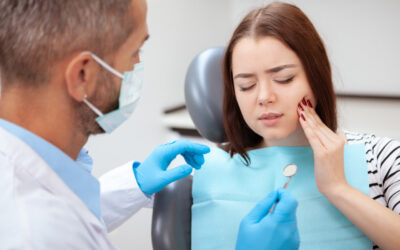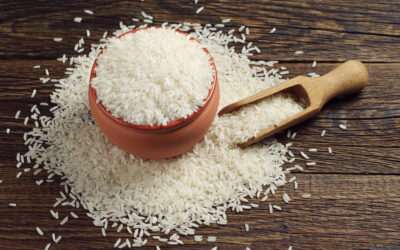How to Remove Plaque from Dentures Instantly

Dentures are a vital dental appliance for individuals who have lost their natural teeth. However, like natural teeth, dentures also require proper care to maintain their functionality and appearance. Plaque buildup on dentures can lead to oral health issues and discomfort.
Understanding Plaque on Dentures
Plaque is a sticky film of bacteria that forms on the surface of teeth, gums, and dentures. If not removed regularly, it can harden into tartar, leading to gum inflammation, bad breath, and even oral infections. Proper denture hygiene is essential to prevent these issues
The Instant Plaque Removal Method
Step 1: Gather Your Supplies
To begin the process of instant plaque removal from dentures, make sure you have the following supplies ready:
- Soft-bristle toothbrush
- Denture cleaner or mild dish soap
- Warm water
- Denture soaking solution (preferably one recommended by your dentist)
- Clean towel or denture cloth
Step 2: Initial Rinse
Start by removing your dentures and giving them a thorough rinse under warm water. This will help remove any loose food particles or debris that may have accumulated.
Step 3: Brushing
Using a soft-bristle toothbrush and a denture cleaner or mild dish soap, gently brush the surfaces of your dentures. Be sure to pay extra attention to hard-to-reach areas where plaque tends to accumulate, such as crevices and clasps.
Step 4: Soaking
Fill a container with warm water and add a denture soaking solution as per the manufacturer’s instructions. Place your dentures in the solution and let them soak for the recommended duration. This step helps to further loosen and dissolve plaque.
Step 5: Final Brushing
After soaking, remove your dentures from the solution and give them a final brushing to remove any remaining plaque. This step ensures a thorough cleaning.
Step 6: Rinse and Dry
Once you’re satisfied with the cleanliness of your dentures, rinse them thoroughly under warm water to remove any traces of the cleaning solution. Gently pat them dry with a clean towel or denture cloth before putting them back in your mouth.
Tips for Preventing Plaque Buildup on Dentures
To maintain the pristine condition of your dentures and prevent plaque buildup, consider incorporating these tips into your routine:
- Daily Cleaning: Make it a habit to clean your dentures daily to prevent plaque from hardening and becoming more difficult to remove.
- Avoid Harsh Abrasives: When cleaning your dentures, avoid using abrasive materials or harsh chemicals that could damage their surfaces.
- Regular Dental Checkups: Schedule regular visits to your dentist to ensure your dentures fit well and to address any potential issues promptly.
- Proper Storage: When not wearing your dentures, store them in a denture container filled with water to prevent them from drying out and becoming more susceptible to plaque buildup.
- Hygiene for Natural Teeth: If you have natural teeth remaining, ensure that you’re maintaining proper oral hygiene for them as well, as they can contribute to plaque on dentures.
FAQs
What dissolves tartar on dentures?
A mixture of water and white vinegar can help dissolve tartar on dentures by soaking them for a few hours, followed by brushing with a denture brush.
What dissolves plaque fast?
A combination of baking soda and hydrogen peroxide can dissolve plaque quickly when used as a paste for brushing teeth.
Does vinegar remove tartar from dentures?
Vinegar’s acidic nature may aid in removing tartar from dentures to some extent, but it’s best to consult a dentist for effective denture cleaning methods.
How can I remove hardened plaque?
Hardened plaque can be removed by regular dental cleaning, using tools like dental picks or scalers, and maintaining a consistent oral hygiene routine.
What is a home remedy for hard plaque?
A home remedy for hard plaque involves rubbing a mixture of baking soda and water onto teeth, and gently scrubbing to help diminish its presence.
Can baking soda remove hardened plaque?
Baking soda can potentially help break down hardened plaque due to its abrasive nature when used cautiously, but professional dental care is recommended.
Is it safe to Rinse your mouth with baking soda?
Rinsing your mouth with a diluted baking soda solution (1/2 teaspoon in 1/2 glass of water) can be safe for occasional use to neutralize acidity and freshen your breath.
Is it safe to use baking soda on teeth?
Using baking soda on teeth occasionally for brushing can be safe, but its abrasive nature means it should not be used excessively to avoid enamel damage.
What are the side effects of baking soda on your teeth?
Side effects of excessive baking soda use on teeth can include enamel erosion, tooth sensitivity, and gum irritation, highlighting the importance of moderation.
Conclusion
In conclusion, keeping your dentures free from plaque is essential for both your oral health and overall well-being. By following our comprehensive guide on how to remove plaque from dentures instantly, you’ll be well-equipped to maintain clean and comfortable dentures that contribute to your overall confidence and quality of life.
Remember, good oral hygiene practices extend beyond natural teeth, and by prioritizing denture care, you’re taking a crucial step towards a healthier smile.



